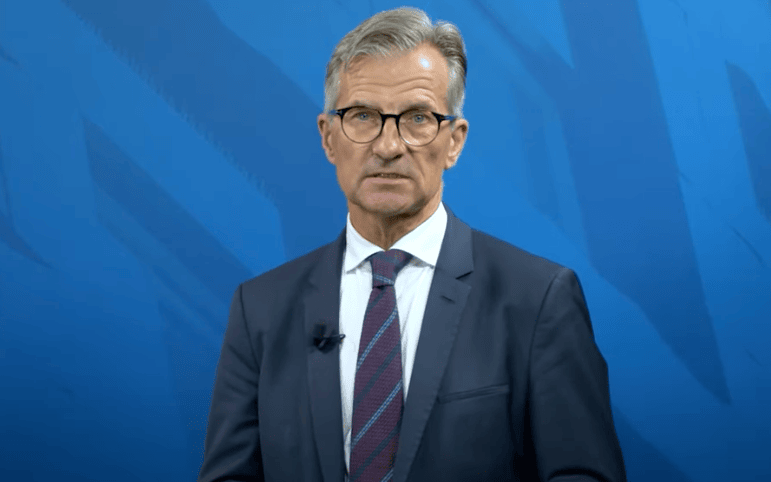Krona Strengthens as Rate Cut "Not as Dovish as the Market" Expected

Above: File image of Erik Thedéen, Governor of the Riksbank. Image: Pound Sterling Live, Riksbank.
The Swedish Krona strengthened after Swedbank cut interest rates 25 basis points and indicated it was willing to cut again.
The reaction - a strengthening SEK - would appear counterintuitive at first sight: the playbook says a currency should depreciate when its central bank lowers lending rates.
Analysts at Swedbank explain that a strengthening Krona reflects a mismatch in market expectations and what the central bank will ultimately deliver by way of future rate cuts.
"The Riksbank was as dovish as it could be, and still it wasn’t enough for the market to move rates lower. The market currently discounts slightly more than 3 x 25bp rate cuts at the remaining Riksbank meetings this year," says Pär Magnusson, Senior Rate Strategist at Swedbank.
The relief rally in SEK reflects these expectations have reached maximum 'dovishness', meaning the odds of fewer cuts are growing. Indeed, the Riksbank said it would cut two or three times more this year.
The Pound to Krona exchange rate is now trading a third of a per cent lower on the day at 13.34 in recognition of dovishness peaking, the Euro to Krona is down by half a per cent at 11.37 and the Dollar to Krona is down 0.45% at 10.26.
"Barring a reversal of the downward core inflation trajectory, the Riksbank seems quite likely to deliver 25bp cuts at every remaining meeting this year, but then again the market already discounts three more cuts and then some," says Magnusson.
Analyst Adrian Prettejohn at Capital Economics thinks the level at which Swedish interest rates reach when the cutting cycle is complete will be higher than markets currently expect; a broadly SEK-supportive assessment.
Capital Economics thinks the terminal rate will be 2.5%, which will be reached in early 2025. This is higher than the market pricing for a terminal rate of 1.75%.
The Riksbank cut rates, noting that economic data outturns had been weaker than its economists' previous forecast, while inflation was abating faster than expected.
